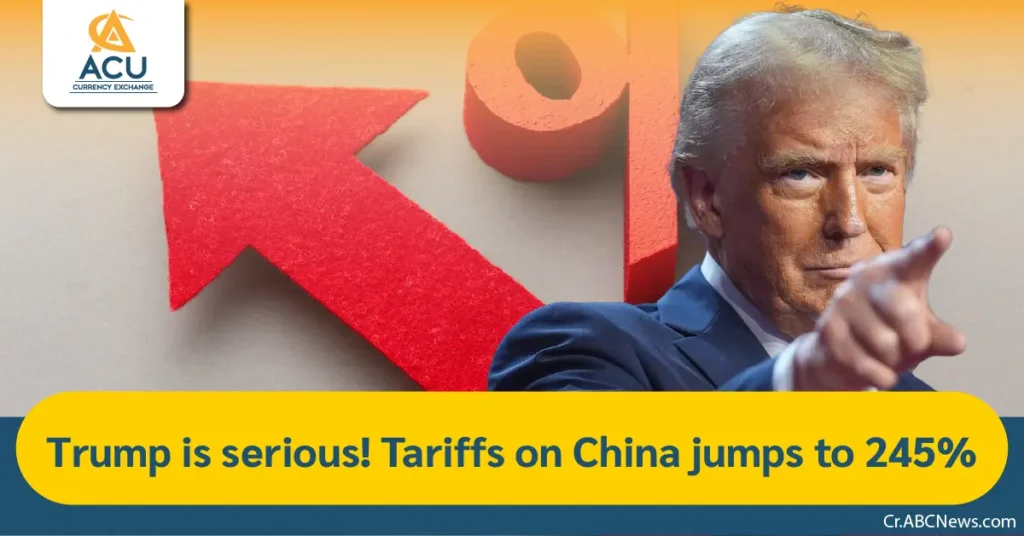Trump is serious! Tariffs on China jumps to 245%

The U.S. government, under the leadership of President Donald Trump, has announced a significant tariff increase on certain goods imported from China, reaching up to 245%. This number is not a mistake or typo, but the result of a combination of several tariff measures imposed on Chinese products at the same time, especially those related to “rare earth minerals,” which are strategic resources critical to national security.
Content
What Makes Up the 245% Tariff?
According to the White House, the 245% tariff is not a single tax but the sum of several measures, including:
- A 10% base tariff on all imported goods.
- A 125% retaliatory tariff in response to China’s tariff actions.
- A 20% special tariff related to fentanyl (a powerful drug).
- A 100% tariff under Section 301 of the Trade Act, which may vary depending on China’s trade practices.
In some cases, for example, combining 125% + 20% + 100% or 125% + 10% + 90%, the total tariff can indeed reach 245%.
This tariff move comes as part of the ongoing trade conflict between the U.S. and China, particularly concerning rare earth minerals, which are very important to strategic industries like weapons, aircraft, missile systems, and medical devices such as MRI machines.
China is a dominant power in rare earth minerals, controlling 92% of global processing and supplying the U.S. with 70% of the processed materials. This has led the U.S. to believe that China could use rare earth minerals as a “geopolitical weapon” to put pressure on trade and national security issues.
In the same month, China retaliated by suspending exports of six types of rare earth magnets to the U.S., directly affecting the U.S. high-tech industry supply chains, including electronics, aviation, and military sectors.
Connection to Trump’s Executive Order
The 245% tariff is linked to an executive order by Trump on April 15, which directed the U.S. Department of Commerce to investigate whether dependence on foreign rare earth materials, particularly from China, poses a ‘national security threat.’ If the investigation confirms this threat, the U.S. may use Section 232 of the Trade Expansion Act of 1962 to impose additional controls on these resources.
To depend less on China, the U.S. government is trying to grow its rare earth industry in the country. The U.S. Department of Defense has invested more than $439 million to support domestic companies, and the U.S. is collaborating with allies like Australia and Canada to establish a mine-to-magnet supply chain by 2027.
Trump has emphasized that “China needs to make a deal with us, not the other way around.” In response, China said the U.S. started the conflict and used unfair pressure.
This latest round of tariff wars is not just about trade; it is a strategic war involving national security and control over critical global resources.
reference
- Popular tags | Tariffs on China
About the Author

ACU-Exchange
We are committed to providing the best foreign currency exchange experience and customer satisfaction to meet the needs of Thais who want to travel abroad and foreigners who come to continue their studies or work in Thailand.



